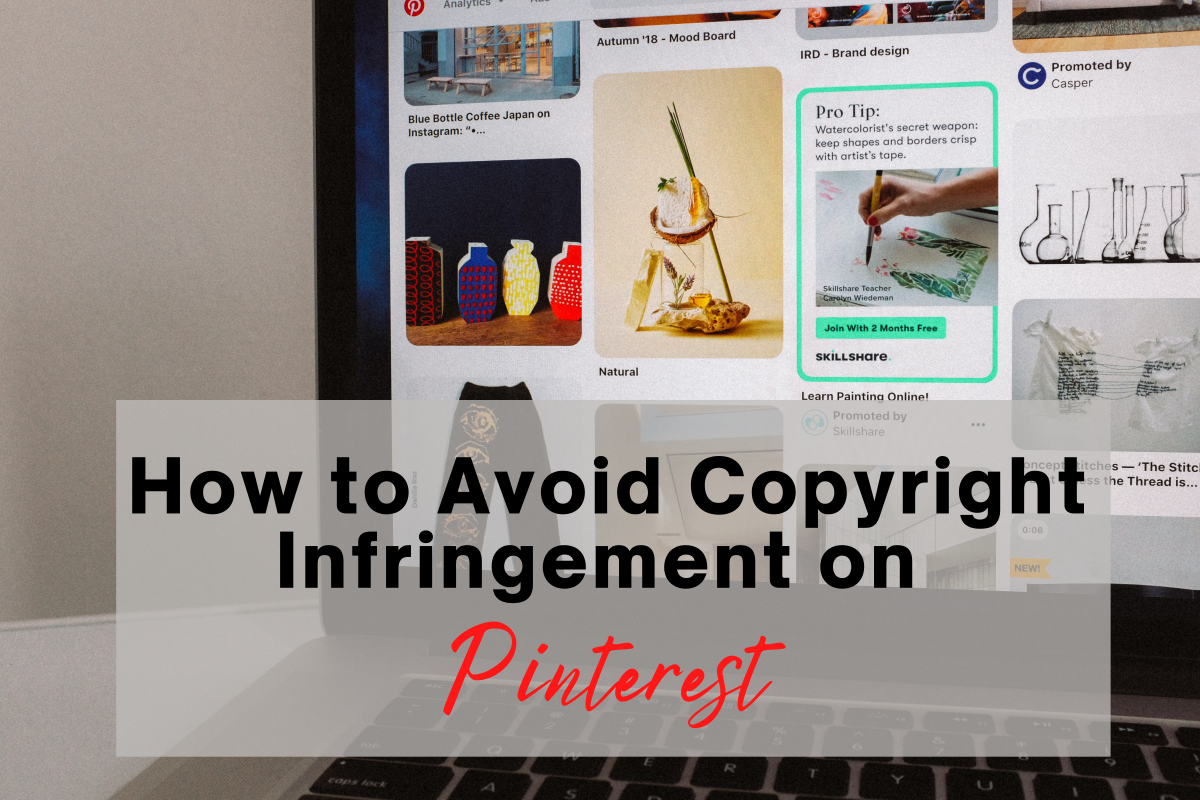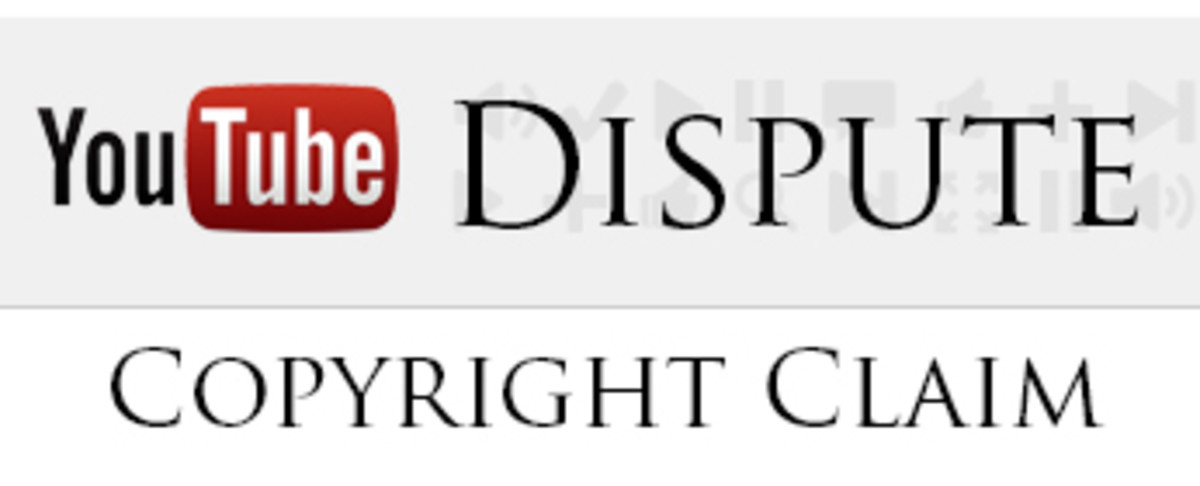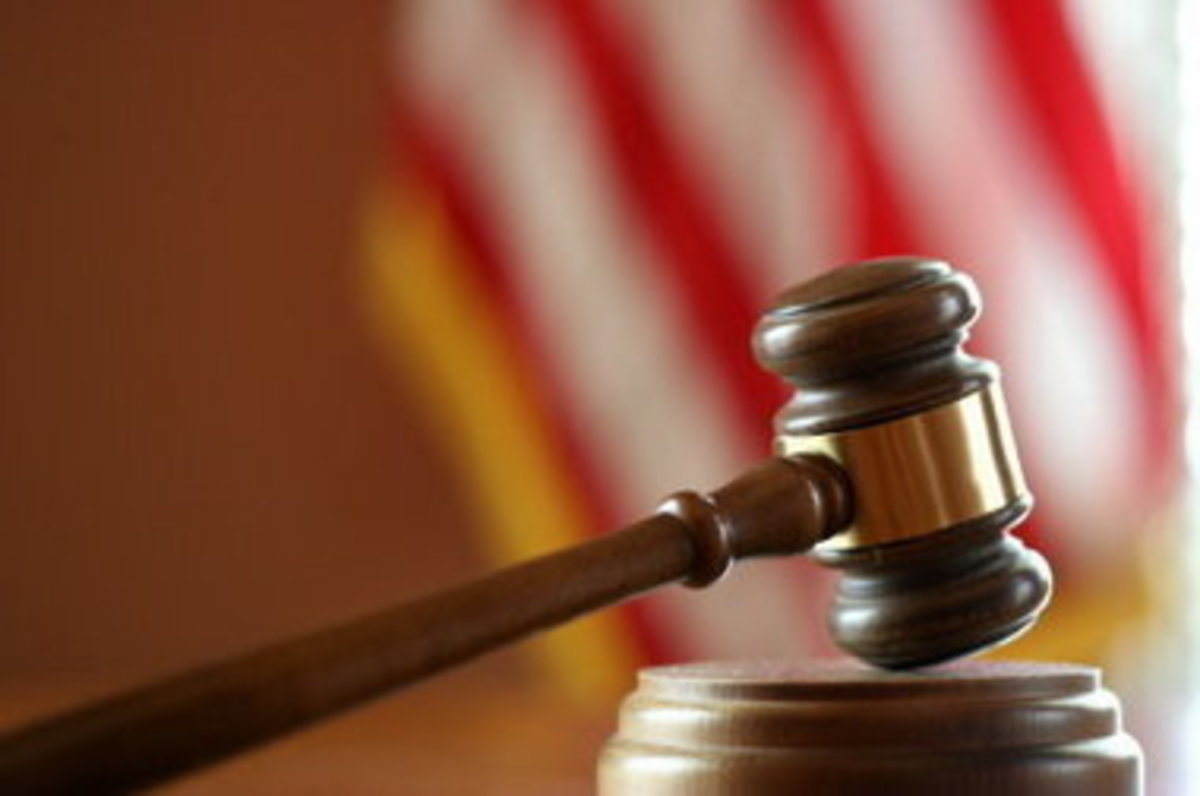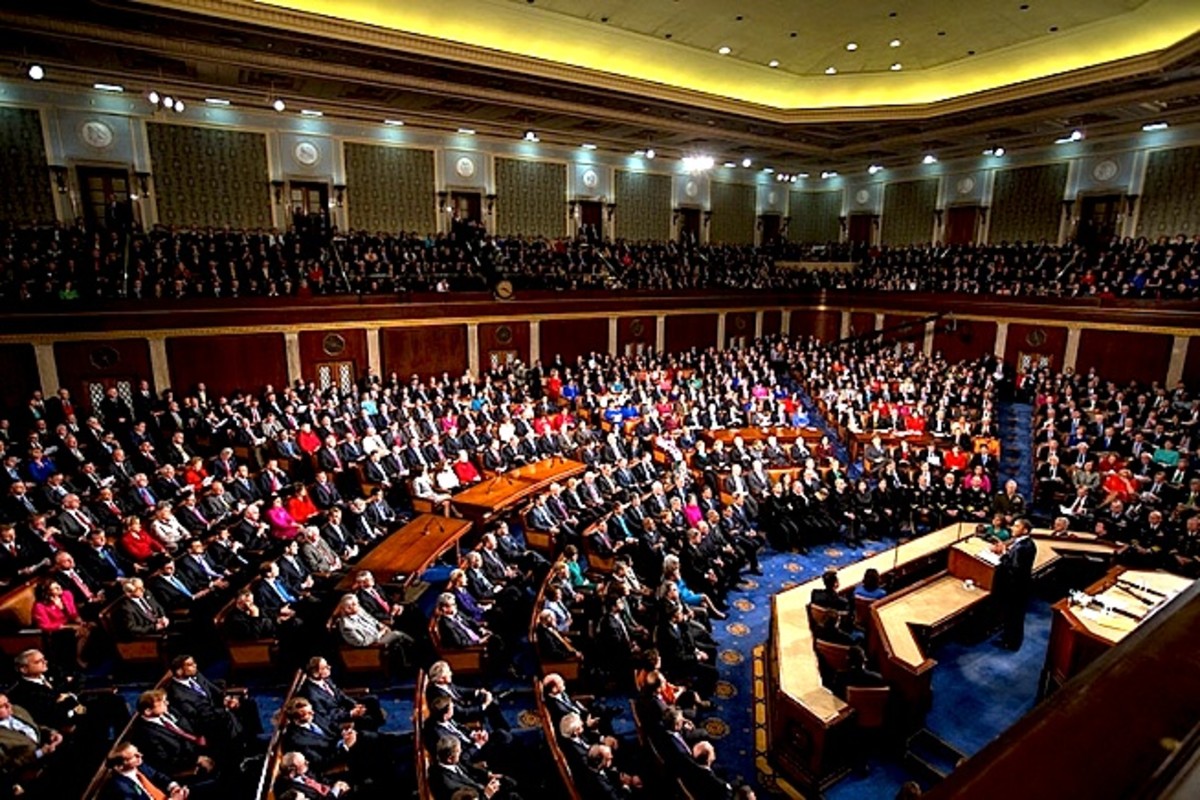The Solution To Copyright Infringement?
By Rachael O'Halloran
Published August 26, 2014
What is the future for copyright infringement cases?

Introduction
In 2011, Congress ordered the United States Copyright Office to see what kind of plan they could come up with that would help all copyright owners enforce their copyrights without having to file big expensive lawsuits in federal courts.
As we know, the wheels of government turn very slowly. Congress gave them until September 30, 2013 to get it done. In true style, exactly on the deadline date, the US Copyright Office offered a 161 page report outlining their solution. The report has an additional 40 pages detailing their decision-making process and comes to 201 pages.
In July 2014, it was brought up in the Senate and a few weeks later, in the House of Representatives.
Copyright Claims Board
A letter dated 9/30/2013 which prefaced the report and was addressed to Hon. Robert Goodlatte Chairman U.S. House of Representatives, Committee on the Judiciary and to Hon. John Conyers, Jr. U.S. House of Representatives, Ms. Maria A. Pallante, Register of Copyrights and Director of the U.S. Copyright Office, stated:
"The [US Copyright] Office conducted four days of public hearings in New York and Los Angeles. and received written comments from individual authors, industry associations, public interest groups, technology companies, publishers, and scholars."
~~*~~*~~*~~*~~*~~*~~*~~*~~*~~*~~*~~*~~*~~*~~*~~*
As some of you may know, my ear has been to the ground regarding copyright issues since 2001. Having lived in California until early 2014, I never once heard a word about four days of hearings in LA or NY.
Having "public hearings" is all well and good, but not very effective if the "general public" has not been made aware of them. A quick search through newspaper archives revealed no "PUBLIC NOTICES" in the three most active Los Angeles newspapers for the years 2011, 2012 and 2013. It seems only a "select sector of the public" was invited because the last 40 pages of the report shows exactly who "responded to the notice of inquiry." This leads me to believe that their public notice was actually "by invitation only."
~~*~~*~~*~~*~~*~~*~~*~~*~~*~~*~~*~~*~~*~~*~~*~~*
The report states: "Unfortunately, and perhaps ironically, as the rate of infringement has increased, so too have the barriers to pursuing copyright claims in the federal courts. These barriers are largely practical: federal litigation is expensive and time-consuming, and therefore out of reach for many copyright owners. The problem is especially vexing in the context of small claims, where the injury may be limited or difficult to measure."
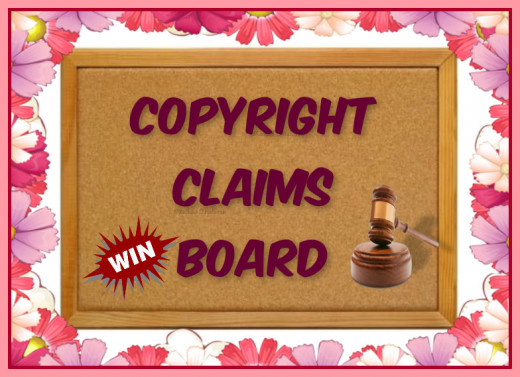
A Voluntary System
Ms. Pallante is not telling us anything we didn't already know. But 201 pages later, the solution was to create a Copyright Claims Board - a voluntary system of adjudication to be administered directly by the Copyright Office - which will hear and judge small claims.
The hitch to it is that all parties have to agree to use this process.
So, how will this work?
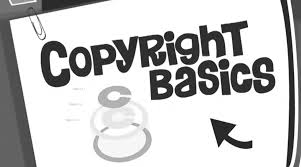
The Proposal - A Tribunal
The Short Version!
- The US Copyright Office is asking Congress to create a three-person Tribunal of professionals to handle copyright infringement cases (by remote and in person) as a voluntary alternative to federal court.
- The Board will handle "cases capped at no more than $30,000 in damages, but also permits Plaintiffs to collect statutory damages limited to $15,000 per work (or $7,500 for a work not registered by the normally applicable deadline for statutory damages."
- Both parties would present their own cases - fair use, willful infringement, ignoring DMCA,etc. - with or without counsel assistance, per their preference.
- Attorneys’ fees would not be recoverable except in cases of bad faith, up to $5,000.
- Both parties have to sign an "opt-out" so that the Board could adjudicate the case.
- The hearing proceedings would be extremely streamlined, with limited discovery and no formal motion practice or depositions. An infringer's agreement to cease infringing activity could be considered by the Tribunal and carry weight in its determination of damages
- Cases will go on to have some administrative review for errors so the Board's findings will be binding, but can be challenged in federal district court for fraud, misconduct, or other improprieties.
- The process will be offered in several formats - in person, by teleconferencing, by email, and by electronic video (similar to Skype)
A Good Or A Bad Alternative?
If this were offered to you as an alternative to federal court, would you participate?
Update: American Royalties, Too (ART) Act of 2014
Introduced in Senate on 02/26/2014 by Senator Tammy Baldwin (D-Wisconsin)
This only pertains to "visual artists."
American Royalties, Too Act of 2014 - A bill to amend US Title 17 to secure the rights of visual artists to copyright, to provide for resale royalties, and for other purposes.
Expands copyright owners' exclusive rights, in the case of a work of visual art, to include the right to collect or authorize the collection of a royalty if the work is sold by a person other than the author for at least $5,000 in an auction.
Defines "auction" as a public sale of visual art to the highest bidder run by an entity that sold at least $1 million of works of visual art during the previous year.
Revises the term "work of visual art" to make requirements for photographs consistent with requirements for paintings, drawings, and prints. Currently, a photograph must be a still photographic image produced for exhibition purposes only.
Limits the amount of such a royalty to the lesser of:
- (1) 5% of the purchase price; or
- (2) $35,000, subject to cost-of-living adjustments.
Directs entities conducting such auctions to collect and pay the royalties to a visual artists' copyright collecting society. Requires the collecting society, at least four times each year, to distribute the appropriate royalties (minus administrative expenses) to authors or successor copyright owners.
Requires an author of a work of visual art, in order to be eligible to receive such a royalty, to:
- (1) be a citizen of, or domiciled in, the United States or a country that provides resale royalty rights; or
- (2) have first created the work in the United States or a country that provides such royalty rights.
Establishes a copyright infringement offense for the failure to pay such a royalty. Subjects infringers to:
- (1) statutory damages, and
- (2) liability for the full royalty.
Prohibits the sale, assignment, or waiver of the right to collect such a royalty, subject to exceptions for works made for hire and transfers of copyright ownership.
Directs the Register of Copyrights to issue regulations governing visual artists' copyright collecting societies.
The full text version is here.
NOTE: The Senate has not yet passed this Bill for it to go to the House of Representatives. After it does, when they pass it, then it goes to the President of the United States. After he/she signs it, then it becomes law.
July 2014 - Hearings In Congress
On July 15, 2014, the Subcommittee on Courts, Intellectual Property and the Internet came before the Judiciary Committee of the US House of Representatives and held hearings.
A number of matters were discussed, namely:
- changing the copyright term back to 1976 Copyright Act laws.
- copyright holder's termination rights,
- moral rights and
- the concept of "resale royalty rights giving artists (not especially authors, but artists) a way to benefit from the increased value of their works over time by granting them a percentage of the proceeds from later sales."
- "integrity rights where songwriters would have some control over the future use of their compositions."
- one speaker wanted to go back to the laws before the 1976 Copyright Act which was 28 years then renewable for 28 more years. (what kind of support is that for authors?)
- for the Public Domain Enchancement Act, be reinstated which has certain registration requirements in place for after the death of the author.
~~*~~*~~*~~*~~*~~*
On July 24, 2014, Congress again held hearings and the topics were:
- the Small Claims Tribunal offered by the US Copyright Office (see below)
- the efforts to bring Kim Dotcom to the US for criminal conspiracy charges (see sidebar)
- the fact that internet piracy of streaming video is being classified as "public performance" instead of copyright infringement where some cases have been won.
- increased funding to allow the Department to send specialized prosecutors to other countries to combat global IP piracy
- raising statutory damage levels to per "infringed work" instead of per "infringed copy"
- how "copyright trolls" file fraudulent DMCA takedown notices, trying to collect damages
- how some claimants file DMCA takedown notices to pursue potential infringers with no proof, causing bankruptcy in some cases as well as disparaging the reputation of a falsely charged infringer.
- abuse of the "right click license" where users copy and paste material without regard to infringement or obtaining a license.
Very little time was spent discussing the actual Small Claims Tribunal, but rather a number of other copyright topics which speakers seemed intent on ironing out before addressing the "how" of dealing with copyright infringement on a smaller scale.
At any rate, the proposed Tribunal was not passed as of this writing by either House in order to be sent to the President for signature.
Megaupload, Ltd.
This company was founded by Kim Dotcom and based in Hong Kong. Its sole purpose was to commit copyright infringement on a massive scale. Megaupload, Ltd is responsible for uploading over 34.9 billion online files for viewing and personal use to its members. It was shut down in 2012 by the US government which defines the company “a worldwide criminal enterprise, which operates and administers several Internet websites that reproduce and distribute infringing copies of copyrighted works.”
Kim Dotcom is a New Zealand resident and is fighting extradition to the United States to face charges of criminal conspiracy.
This link explains the operation of the 34.9 billion websites and how any attempt by the copyright holder to use an "abuse tool" or other DMCA takedown processes would fail because the files remained available through undisclosed URLs to its members.
About The New Copyright Revisions
Unless you are a devoted reader of the Federal Register, this announcement might have slipped by you - the "general public." (At the above link, the actual notice is located at the right side, bottom of the page and continued on next page.)
On August 19, 2014, Register of Copyrights Maria A. Pallante announced the release of a public draft of the Compendium of U.S. Copyright Office Practices, Third Edition.
"This is the first major revision in more than two decades, the draft presents more than 1200 pages of administrative practices and sets the stage for a number of long-term improvements in registration and recording policy. It will remain in draft form for approximately 120 days pending final review and implementation, taking effect on or around December 15, 2014.
“The new Compendium is an exhaustive undertaking that explains and reconciles the many legal interpretations, regulations, and procedures of the Copyright Office in administering the copyright law,” said Pallante. “At the same time, it provides a necessary and authoritative foundation for ongoing policy and regulatory discussions that are pertinent to the digital era."
This Compendium is considered a technical manual for staff, as well as a guidebook for authors, copyright licensees, practitioners, scholars, the courts, and members of the general public."
It is a draft, not a final edition. Previous editions went speedily from draft to final edition. Since no bumps in the road are expected here, it should become a final edition on December 15, 2014.
First Edition - revised 1909 laws.
Second Edition - revised 1976 laws.
Third Edition - a complete waste of time.
To my view, the content of the 1200 pages was as described - all technical rhetoric on how to file forms, what is copyright-able and the practices of the inner Copyright Office.
There is absolutely nothing of value in these 1200 pages unless you are ready to register a copyright, if you need to know what material is permitted to be copyrighted, or if you do not understand the requested information in order to be able to complete the registration forms.
~~*~~*~~*~~*~~*~~*~~*~~*~~*~~*~~*~~*~~*~~*~~*~~*~~*
For those who missed it, a new fee schedule went into effect on May 1, 2014 and you can view the list here.
Summary
If and when Congress gets around to deciding if they will pass the proposed Copyright Claims Board, I will update this article.
In the meantime, I'd love to hear what you think of the idea.
Do you think copyright owners will want to use the new system or do you think they'd rather have their day in federal court?
Do Not Copy

© Rachael O'Halloran, August 26, 2014
© 2014 Rachael O'Halloran

